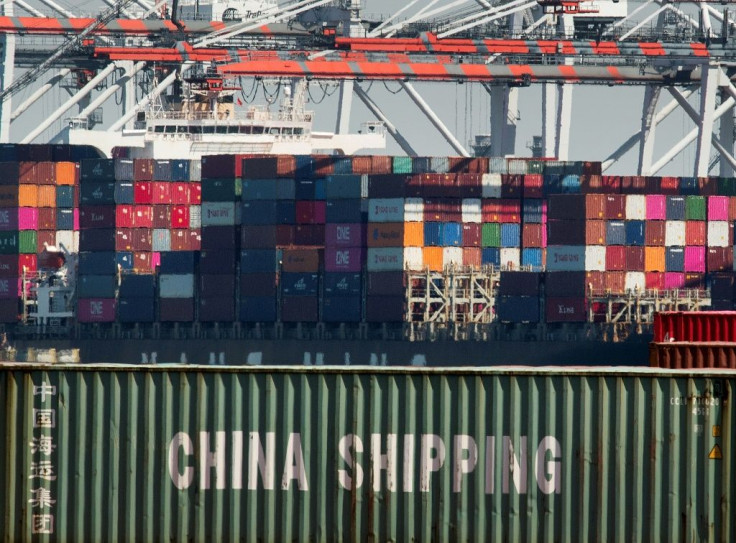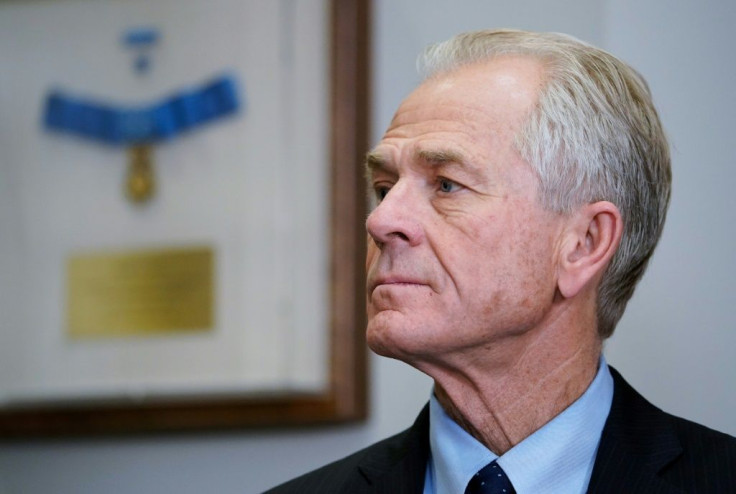No China Tariff Rollback Even If Global Economy Feels Coronavirus Pain, Says US Trade Adviser

KEY POINTS
- Impact of new coronavirus outbreak expected to be worse than that of SARs
- Navarro said no rollback of tariffs even if China slowdown hit the global economy
- Hospitality industry is worst hit as global airlines are suspending China operations
The United States is unlikely to give China a tariff lifeline even though the new coronavirus outbreak may hit the global economy worse than the 2003 SARS epidemic, reports say. Health experts have said the latest virus outbreak could get worse as more people have already been infected in Mainland China than by the SARS virus.
China has reported 170 deaths from coronavirus and 7,711 cases of infections since the outbreak began in the industrial city of Wuhan in Hubei province. The official number of infections during the 2003 SARS outbreak was 5,327. The coronavirus fatalities are also creeping up to 349 due to SARS.
With around 11 million people, Wuhan is contributing about $224 billion or 1.6% to China’s gross domestic product is already under a prolonged lockdown. The city, known as China’s Chicago for the number of manufacturing industries with operations in and around it, hosts facilities of more than 300 Fortune 500 companies, an Al Jazeera report says. Most companies have extended the Lunar New Year holidays until February 3 whole stores and supermarkets are remaining shut in most parts of Hubei province.
Meanwhile, White House trade adviser Peter Navarro denied any move to ease Chian’s tariff pain, according to a report on the CNBC website. “That’s a spin that’s coming right out of Wall Street, and it really, I think, it does a disservice to this whole crisis to bring that into the discussion.”
Navarro was asked whether a tariff rollback was on the table if China met the “phase one” trade deal terms in view of the coronavirus outbreak. On the subject of removing tariffs due to the coronavirus, Navarro said, “Let’s remember why the tariffs are in place,” he said.
The global economic cost of the SARS outbreak was an estimated $40 billion, according to Al Jazeera, shaving off 0.1% of the world’s nominal GDP. It took the global economy five months to recover from the slowdown that SARS induced. The worst-hit was the travel and tourism sector with worldwide hotel occupancy plummeting 60% while travels to potential SARS areas declining by 70%.
Economic activity across China has plunged, with thousands of shops and supermarkets downing shutters. An increasing number of airlines from around the world are suspending flights to Chinese cities, not merely in the Hubei province. Disneylands in Hong Kong and Shanghai have closed while nine major regional cruises have been aborted, reports say. Some experts say the economic effect can last up to six months.
The entire Asian economy has begun feeling the burden of the Wuhan virus with the hospitality sector taking the brunt. Economic activity at the beginning of the Chinese Year of the Rat had been expected to top $1 trillion with wealthy Chinese traveling to Asian destinations.
Navarro’s remarks came hours after President Donald Trump signed into law the US-Mexico-Canada trade deal.

© Copyright IBTimes 2025. All rights reserved.





















